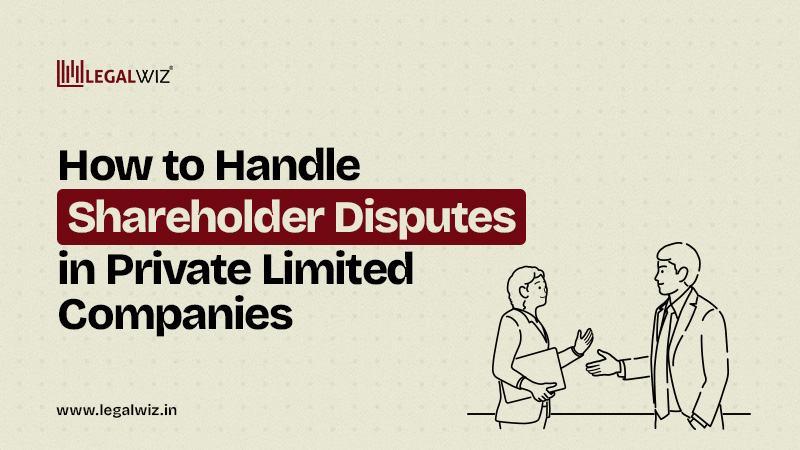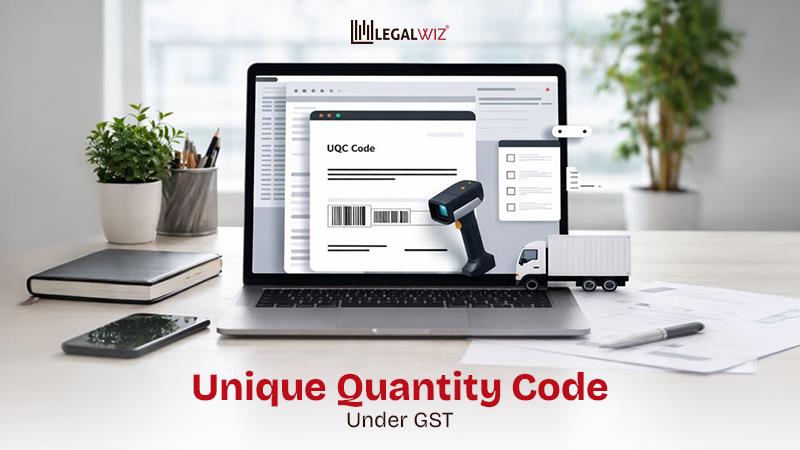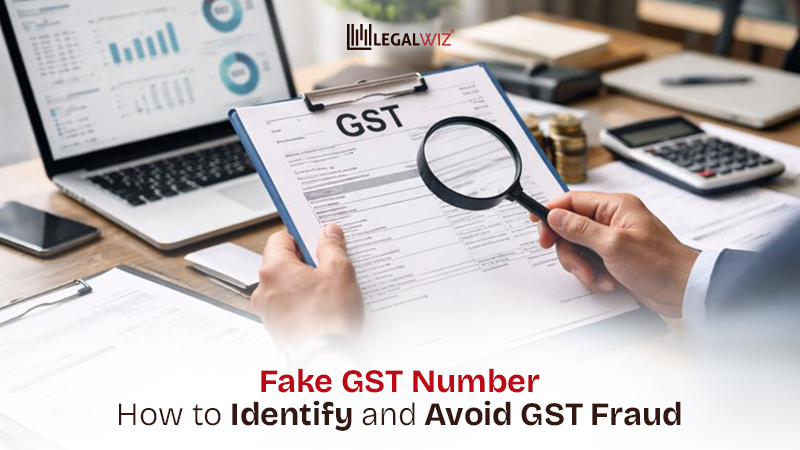How to Handle Shareholder Disputes in Private Limited Companies
In the business world, a private limited company can serve as an excellent vehicle for growth. It offers flexibility and limited liability protection to its owners. However, just as with any business venture, challenges can arise! And one of the most complex and disruptive issues a private limited company can face is shareholder disputes. These disputes can involve disagreements over decision-making, profit distribution, company management, or ownership control! They can also potentially damage the company’s reputation, operations, and financial stability.
Understanding how to handle shareholder disputes in a private limited company is crucial for maintaining harmony, ensuring smooth business operations, and protecting the company’s long-term success. In this article, we will explore common causes of shareholder disputes, preventive measures, and ways to effectively resolve conflicts when they arise.
What are Shareholder Disputes?
Shareholder disputes occur when shareholders of a company are in disagreement over various matters concerning the management, operations, or direction of the company. These disputes can arise in any company, but they are especially critical in private limited companies due to the relatively small number of shareholders, where the stakes are higher, and personal relationships often come into play.
Shareholder conflicts can stem from issues such as:
- Disagreement over company management and strategy: Shareholders may disagree on business decisions or very manner of running the company.
- Financial disputes: These can include disagreements over profit-sharing, dividend distribution, or financial mismanagement.
- Ownership disputes: This could involve issues related to stock ownership, transferring shares, or the dilution of a shareholder’s stake.
- Exit disputes: A shareholder may wish to exit the business, but the terms of exit or valuation may lead to conflict.
When shareholder disputes are not properly addressed, they can escalate. This can result in legal actions, loss of investor confidence, and even the dissolution of the company.
Common Causes of Shareholder Disputes in Private Limited Companies
Several factors contribute to shareholder disputes in a private limited company. Identifying the root causes is essential for resolving conflicts quickly and preventing them from recurring in the future. Here are some of the most common causes:
- Mismanagement and Lack of Communication Inadequate communication between shareholders and the management team is one of the primary causes of disputes. If shareholders feel uninformed about decisions or financial performance, misunderstandings can arise. Poor communication can also result in divergent views on the management of business.
- Disagreements over the Direction of the Company Shareholders may have differing visions for the future of the company, which can lead to conflicts. Disagreements about the company’s growth strategy, risk appetite, and market direction can create significant tension among shareholders.
- Financial Discrepancies Disputes often occur when shareholders feel that they are not receiving a fair share of the company’s profits. Or there is a lack of transparency regarding the company’s financial health. This can result in a loss of trust, particularly if the company’s financial management is unclear or disputed.
- Ownership and Control Issues Issues related to shareholding percentages, control over company decisions, and shareholder rights can lead to disagreements. For example, a shareholder may feel that their stake in the company is not being respected. Or that their voting power has been diminished due to new shares being issued or transferred.
- Exit Disputes When a shareholder wants to exit the company, disputes can arise. Specifically, if there are no clear terms in place regarding how the exit should happen. Without proper agreements in place, the process of exiting the company—whether by selling shares or withdrawing from the business—can become contentious.
Preventive Measures to Avoid Shareholder Disputes
The best way to handle shareholder disputes is to prevent them from occurring in the first place. Proper planning, transparency, and clear agreements can help prevent conflicts from escalating. Here are some preventive measures to consider:
Create a Shareholders’ Agreement
One of the most effective ways to prevent shareholder disputes is to have a comprehensive shareholders’ agreement in place. What is a shareholders agreement? A shareholders’ agreement is a legally binding document that sets out the rights, duties, and responsibilities of each shareholder. It can cover a wide range of issues, including share transfers, decision-making processes, dividend distribution, dispute resolution mechanisms, and exit procedures. Having a shareholders’ agreement helps align expectations among shareholders, thereby minimizing the potential for conflict. For example, the agreement can specify how shares are to be valued, the method for resolving disputes, and the process for shareholders who wish to exit the company.
Clear Communication and Regular Updates
Ensuring open communication and regular updates regarding the company’s performance, financial status, and strategic direction is essential. Shareholders should feel well-informed and involved in decision-making, which reduces the likelihood of misunderstandings or grievances.
Establish a Dispute Resolution Mechanism
It is important to include a clear dispute resolution mechanism in the shareholders’ agreement. This should outline the steps to take when conflicts arise, such as negotiation, mediation, and arbitration. By agreeing in advance on how disputes will be handled, shareholders are more likely to resolve issues amicably and avoid costly litigation.
Set Out Exit and Succession Plans
A clearly defined exit strategy should be established, outlining the conditions under which a shareholder can sell or transfer their shares. Additionally, succession planning is essential, especially for family-owned or closely held companies. Having an exit strategy reduces the likelihood of disputes when a shareholder wants to leave or when ownership transfers need to occur.
Proper Financial Management
Keeping the company’s finances transparent and well-managed can help avoid financial disputes. Shareholders should have access to accurate financial statements and regular updates. Clear procedures for profit distribution and reinvestment can also prevent disagreements over financial issues.
Steps to Handle Shareholder Disputes Effectively
Despite taking preventive measures, shareholder disputes in private limited companies can still occur. When they do, it’s important to handle them carefully to avoid escalation and protect the company’s best interests. Here are the steps to effectively handle shareholder disputes:
Identify the Root Cause of the Dispute:
The first step in resolving any dispute is to understand its root cause. Is the dispute related to financial issues, management disagreements, or a personal conflict between shareholders? After identifying the cause, it becomes easier to determine the appropriate course of action.
Negotiate and Mediate:
Often, the best way to resolve a shareholder dispute is through negotiation and mediation. Sit down with the concerned shareholders and attempt to resolve the issue amicably. Mediation, involving a neutral third party, can also help facilitate communication and offer solutions that are acceptable to all parties involved.
Review the Shareholders’ Agreement:
If a shareholders’ agreement is in place, review it to determine if it provides guidance on handling the dispute. This agreement may outline the steps for resolution. Such as whether arbitration is required or if legal action is necessary. Having an existing framework helps avoid confusion and speeds up the resolution process.
Involve Legal Counsel if Necessary:
If the dispute cannot be resolved through negotiation or mediation, involve legal counsel. Lawyers can interpret the shareholders’ agreement, offer legal advice, and suggest possible courses of action. In some cases, formal legal proceedings may be necessary to resolve the dispute.
Use Arbitration or Litigation as a Last Resort:
If all attempts at resolution fail, shareholders may need to resort to arbitration or litigation. Arbitration is often a preferred method, as it is quicker and less costly than going through the courts. However, in some cases, litigation may be the only option if the dispute involves significant legal issues or breach of contract.
How to Register a Private Limited Company in India
When starting a private limited company, it’s important to follow the legal steps required for private limited company registration in India. Here’s a brief overview of the process:
- Choose a Company Name: Select a unique name for the company, ensuring it complies with the guidelines set by the Ministry of Corporate Affairs (MCA).
- Obtain a Digital Signature Certificate (DSC): All directors must obtain a DSC for signing electronic documents.
- Obtain Director Identification Number (DIN): Directors must apply for a DIN through the MCA.
- File for Incorporation: Submit the required documents, such as the Memorandum of Association (MOA) and Articles of Association (AOA), along with the necessary forms to the MCA.
- Receive Certificate of Incorporation: Once approved, the company will receive a Certificate of Incorporation, confirming its status as a private limited company.
Conclusion
Shareholder disputes in private limited companies can disrupt operations and harm relationships between stakeholders. However, with clear communication, a well-drafted shareholders’ agreement, and a structured approach to conflict resolution, these disputes can be managed effectively. By taking preventive measures and being proactive in resolving conflicts, companies can ensure long-term stability and success.
Understanding how to handle disputes and knowing how to register a private limited company in India are essential steps for entrepreneurs who want to build a sustainable and harmonious business.

Monjima Ghosh
Monjima is a lawyer and a professional content writer at LegalWiz.in. She has a keen interest in Legal technology & Legal design, and believes that content makes the world go round.







